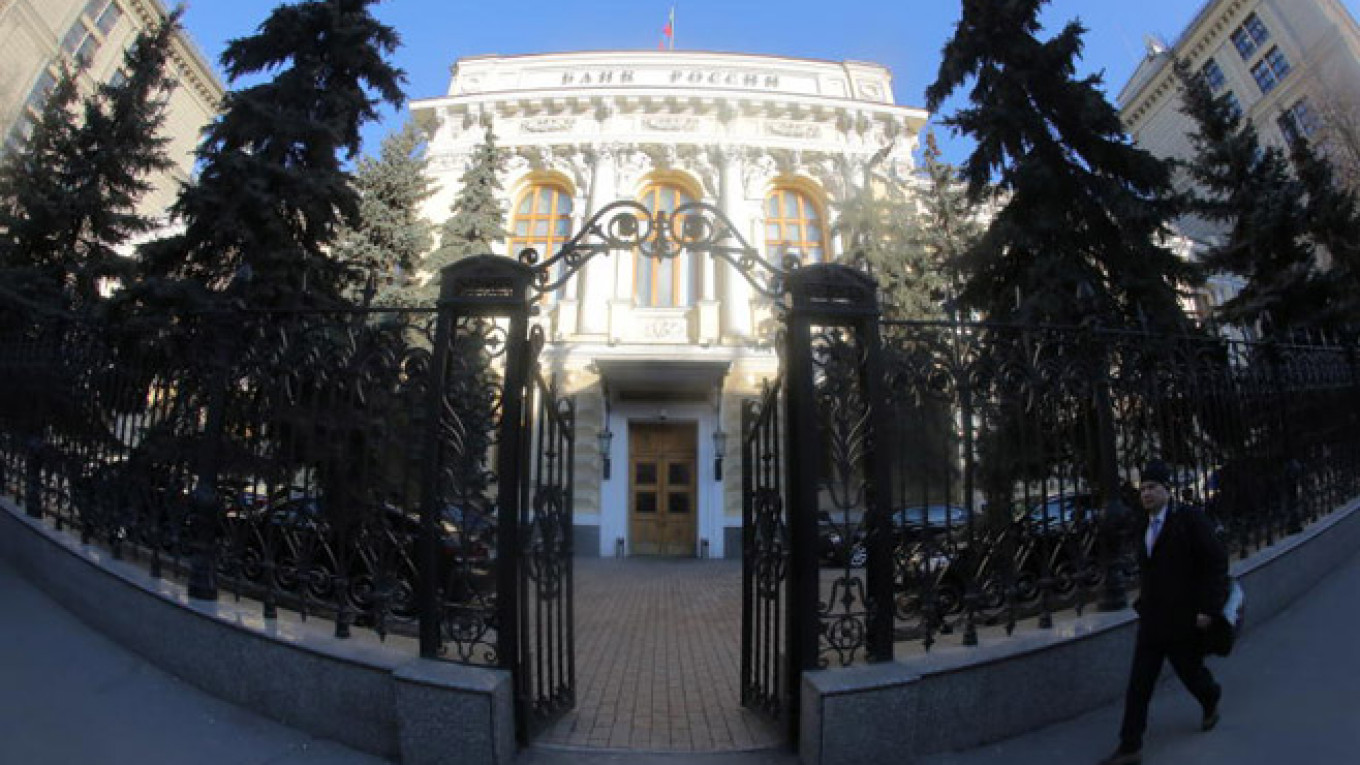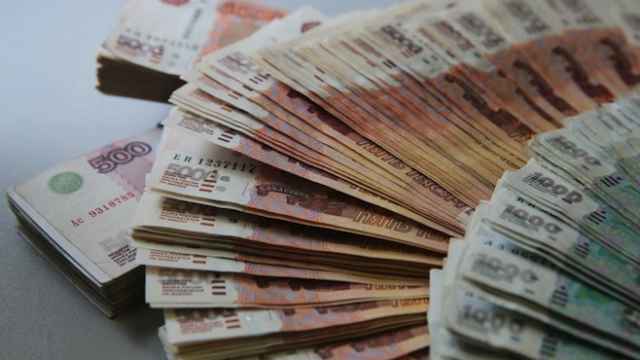Fears of political interference with Russia's Central Bank are being stoked by an apparent change of approach as policymakers look set to cut interest rates on Friday for a second consecutive time this year.
Analysts surveyed by news website RBC earlier this week expected the Central Bank to cut interest rates at their regular monetary policy meeting by 1 percentage point to 14 percent.
The move would please government officials looking to head off a deep economic recession — lower interest rates encourage borrowing — but will fuel worries that the Central Bank is caving into political pressure and straying from its stated policy goal of inflation targeting.
The Russian economy is officially forecast to contract 3 percent this year, although some experts predict that the contraction could be as deep as 7 percent.
"There could be political pressure behind a rate cut because it plays into the hands of the Kremlin economic bloc," said Natalya Volchkova, a professor at the New Economic School in Moscow.
Change of Tulin
The Central Bank unexpectedly cut interest rates by two percentage points at its last meeting on Jan. 30, despite a near unanimous expectation from economists of a freeze.
The apparent new policy approach has been linked with the appointment of Dmitry Tulin, a technocrat with two spells working at the Central Bank, who took over responsibility for monetary policy at the regulator from Deputy Governor Ksenia Yudayeva in January.
In an interview with Reuters news agency last week — his first since he took up his new position — Tulin appeared to be dovish in his outlook, and said that inflation would come down this year.
"We can't not think about the real sector of the economy," Tulin said, according to Reuters. "We considered [when cutting rates] that without any harm to our anti-inflation goals we could help the matter of financial stability."
Not a Strong Ruble
While the Russian currency lost some 40 percent of its value against the U.S. dollar last year amid falling oil prices and Western sanctions on Moscow over the Ukraine crisis, it has clawed back some of its losses this year, gaining 12.7 percent agains the dollar since the beginning of February.
The ruble's recent run of strength has largely been driven by an easing of tension in eastern Ukraine, as well as by a slight recovery in the oil price.
Experts warn that the government will not welcome a too significant ruble rebound as a stronger currency will impede its ability to offset lower revenues from a lower price of oil, Russia's major export earner. "In order to slow the appreciation of the ruble it makes sense to ease monetary policy," said Alexei Pogorelov, chief Russia economist at Credit Suisse.
Inflation Easing
Inflation in Russia is currently running at a rate unseen since the turbulent 1990s. Driven by the dramatic currency devaluation in late 2014 and a Kremlin food import embargo, annual inflation reached 16.7 in February, up from 15 percent in January.
The Central Bank has said that while it expects the rate to peak at over 20 percent, it will fall back in the second half of the year.
"Inflation is already stabilizing and stabilizing at lower levels than expected," said Clemens Grafe, chief economist at Goldman Sachs in Moscow. "Inflation expectations continue to fall."
A positive outlook on inflation allows the Central Bank to argue that it can begin rate cutting now — although any cut will push the nominal interest rate well below the rate of inflation.
"We expect the Central Bank to continue easing its policy, shifting the real rate deeper into negative territory," analysts at Sberbank CIB in Moscow said in a note Tuesday.
Political Pressure?
While there is little concrete evidence to prove the Central Bank has succumbed to pressure from the Kremlin, experts say that Tulin's return to the regulator and further interest rate cuts without inflation coming down substantially add up to a strong indication of political interference.
Kremlin economic aide Andrei Belousov described Tulin's appointment at the time as "not a coincidence" and said that it would mean changes to monetary policy.
The Central Bank had previously been heavily criticized by the government, banks and businesses for raising interest rates and suffocating the economy as a recession loomed.
"There's a gap between what we see in the data and what we hear," said Goldman Sachs' Grafe.
"We can see the rationale behind cutting … I don't need any political pressure to justify that. Can I rule out political interference? No."
A Message from The Moscow Times:
Dear readers,
We are facing unprecedented challenges. Russia's Prosecutor General's Office has designated The Moscow Times as an "undesirable" organization, criminalizing our work and putting our staff at risk of prosecution. This follows our earlier unjust labeling as a "foreign agent."
These actions are direct attempts to silence independent journalism in Russia. The authorities claim our work "discredits the decisions of the Russian leadership." We see things differently: we strive to provide accurate, unbiased reporting on Russia.
We, the journalists of The Moscow Times, refuse to be silenced. But to continue our work, we need your help.
Your support, no matter how small, makes a world of difference. If you can, please support us monthly starting from just $2. It's quick to set up, and every contribution makes a significant impact.
By supporting The Moscow Times, you're defending open, independent journalism in the face of repression. Thank you for standing with us.
Remind me later.







